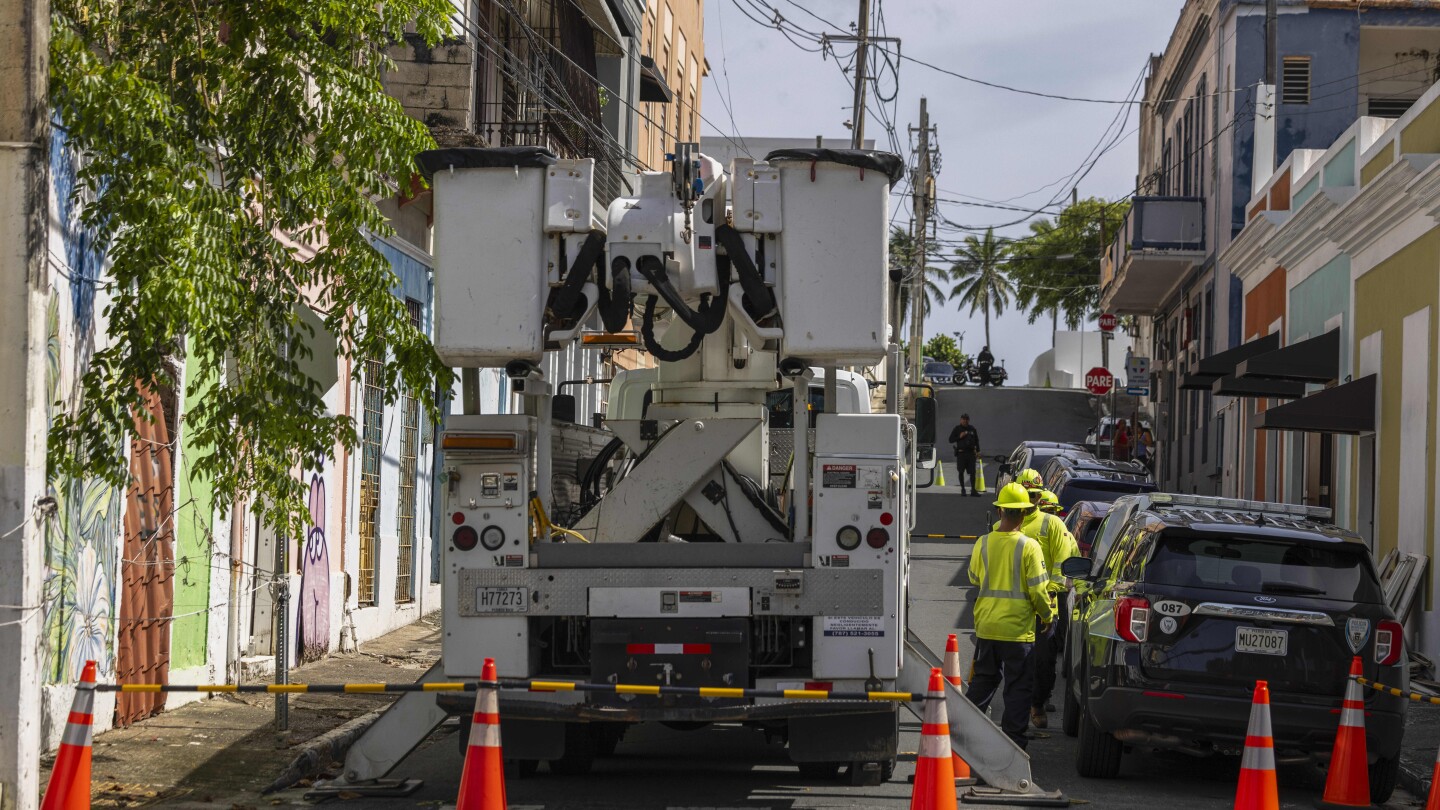SAN JUAN, Puerto Rico (AP) — Tens of thousands of customers remained without power across Puerto Rico on Tuesday, a week after Ernesto swiped the U.S. territory as a tropical storm. Authorities pledged to restore electricity to everyone by the weekend.
The National Weather Service issued yet another excessive heat advisory, warning of “dangerously hot and humid conditions.”
More than 40,000 out of nearly 1.5 million customers remained without power in the afternoon. All schools should have electricity by late Tuesday, officials said, and noted that some 80% of emergency medical clinics, which exclude hospitals, have power.
The northeast coastal town of Luquillo, popular with tourists, reported the highest number of outages, with 30% of clients without power. The towns and cities of Fajardo, Río Grande and Yabucoa were also affected.
Juan Saca, president of Luma Energy, a private consortium that oversees the transmission and distribution of power in Puerto Rico, said the company was “working 24 hours a day,” but that alongside the outages blamed on the storm, there’s a deficit in generation.
Up to 70,000 clients could be temporarily left in the dark late Tuesday, and another 90,000 were already hit Monday by a manual reduction in power to Puerto Rico’s grid.
“It’s very annoying, I don’t want to minimize that,” Saca told reporters, stressing that those outages are brief.
Luma has come under fire ever since it took over transmission and distribution in June 2021 as Puerto Rico’s Electric Power Authority struggles to restructure more than $9 billion in debt.
Recently, a growing number of officials, including those seeking votes during an election year, have called for the government to cancel Luma’s contract.
Gov. Pedro Pierluisi has backed Luma’s work and its swift response in the wake of Ernesto. “In the span of three days, already 96% of the population had electric service,” he said Monday.
During the storm, which spun past the island last Tuesday and Wednesday, a peak of 750,000 clients were without power. Officials blamed trees that fell on power lines and high winds.
However, anger has persisted across an island of 3.2 million people with a more than 40% poverty rate and where few can afford generators or solar panels.
“With all the damage caused by the storm, and LUMA Energy’s inefficiency in powering with precision and agility, Puerto Rico urgently needs other, more reliable energy sources,” said Jesús Hernández Arroyo, president of the island’s House energy commission.
Puerto Rico’s Energy Bureau questioned why the average outage duration per customer increased by 9% from fiscal year 2023 to 2024, for a total of 1,448 minutes.
Julio Aguilar, Luma’s director of reliability and distribution automation, said at Tuesday’s news conference that weather and other things can contribute to a rise and fall in outages within one year, and that it takes five years to establish a base and metrics.
“The improvements are happening,” he said “They will be seen.”
Puerto Rico’s power grid remains fragile after Hurricane Maria razed it in September 2017 as a powerful Category 4 storm, though the grid already was crumbling before that, due to a lack of maintenance and investment.

